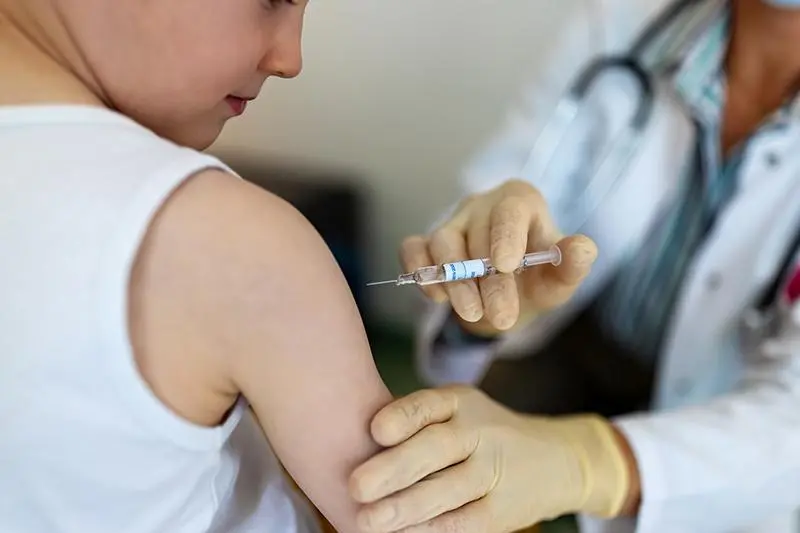PHOTO
Muscat: School children between the ages of six and 12 will be better protected from COVID-19 if everyone follows the protocols required to keep the disease at bay.
With children in this age group unvaccinated against the virus, Dr. Ahmed Mohammed Al Sa’eedi, the Minister of Health, said that treating the virus in a lax manner could lead to an increase in infection rates.
“This is absolutely what we do not want,” said the minister in this context. “At the height of this wave of the pandemic, there were 538 patients in intensive care units. Risk can be reduced by everyone committing to precautions.”
In an interview with the Oman News Agency, he added, “This is especially important for students between the ages of six and 12, because they have not been administered any vaccine doses, and no authorisation has been received, so far, to immunise them.”
The decline in current infection rates, he added, is due to several factors, including peoples’ commitment to COVID precautions, and expanded vaccination campaigns.
The Minister of Health’s advice was echoed by Dr Ahmed bin Salem Al Mandhari, the World Health Organization’s regional director for the eastern Mediterranean.
“Except for a small number of countries, what we’ve seen around the world is some stability in the numbers of deaths and infections,” he explained.
“That is the same in this region as well. The decline of infection numbers might provide some false reassurance to some, who might look at COVID-19 precautions in a lax manner.”
He stressed the need for people to get themselves vaccinated to protect themselves and those around them from the virus, before praising healthcare workers for their efforts in providing care to patients during the pandemic.
“Health workers continue their tremendous efforts, which they have been exerting since the beginning of the pandemic, apart from decision makers, policymakers and planners, who have obtained the required numbers of vaccines,” added the regional director.
Al Mandhari called for cooperation and integration between countries, as there are some that have still not been able to vaccinate even one percent of their population. The WHO has attempted to organise equitable distribution of vaccines.
“The WHO, in consultation and agreement with the countries around the world, has set goals for vaccine coverage for this year, and up to the middle of next year,” he explained. “We aim to vaccinate 10 percent of the world’s population, and the population of each country, by the end of this September, 40 percent by the end of the current year, and 70 percent by the middle of next year.”
“But if there is no cooperation and solidarity between countries, we will not be able to reach these targets,” he said. “This is also because of concern over the rise of new mutations that may require us to start from zero, once again.”
In this context, John Jabbour, the WHO’s representative to Oman, said that the advanced vaccination rates in Oman would help protect people.
“I would like to praise the efforts of the government of Oman under the leadership of His Majesty Sultan Haitham Bin Tarik, for the provision of vaccines for nationals and residents,” he added. “This is what makes Oman an advanced country, when it comes to universal health coverage that countries around the world and this region seek to apply.”
© Muscat Media Group Provided by SyndiGate Media Inc. (Syndigate.info).





















